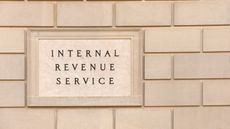7 REIT ETFs for Every Type of Investor
Real estate investment trusts have performed well over the long term. These REIT ETFs allow investors diversification across the real estate sector, and attractive yields to boot.
- (opens in new tab)
- (opens in new tab)
- (opens in new tab)
- Newsletter sign up Newsletter


Real estate has been one of the best-performing investments over the past 20 years, posting richer returns than the S&P 500 Index, growth stocks, value stocks, bonds, gold and nearly every other asset class.
Following a COVID-related slump last year, real estate investment trusts (REITs) and REIT exchange-traded funds (ETFs) have rebounded in 2021, delivering strong gains fueled by the vaccine rollouts, continued low interest rates and a strengthening U.S. economy.
Due to their ability to provide inflation protection, income and safety, REITs find a well-deserved place in many investor portfolios. But while there is nothing wrong with holding individual real estate stocks, owning REIT ETFs can often be a better choice.
Two advantages of real estate funds include instant diversification and professional portfolio management at a very low cost.
Another pro of REIT ETFs is variety; investors can choose from among 30 different products, according to Nareit – the leading global producer on REIT investment research. There are real estate funds designed for active and passive investment styles, value, income and growth orientations and that maximize exposure to select real estate categories.
Here are seven REIT ETFs for every investing style. They represent numerous industries and address different investment approaches and goals, so no matter which type of investor you are, there is likely a low-cost option here that aligns with your goals.
Data is as of Aug. 17. Dividend yields represent the trailing 12-month yield, which is a standard measure for equity funds. REIT ETFs are listed in order of lowest to highest dividend yield.

JPMorgan BetaBuilders MSCI US REIT ETF
- Assets under management: $1.4 billion
- Dividend yield: 2.0%
- Expenses: 0.11%, or $11 annually for every $10,000 invested
The JPMorgan BetaBuilders MSCI US REIT ETF (BBRE (opens in new tab), $100.43) is a passively managed REIT ETF with a twist.
This fund seeks to match the performance of the U.S. equity REIT market, including both small and mid-cap stocks, and may also invest up to 20% of its assets in other exchange-traded futures that correspond to the MSCI U.S. REIT Custom Capped Index – the ETF's underlying benchmark.
BBRE is noteworthy among REIT ETFs for its heavy concentration in the apartment sector, which represents roughly 24% of its portfolio. Apartment REITs gained nearly 30% in the first five months of 2021 in response to a record-low housing supply that caused rental rates to surge.
The ETF's top holdings consist of residential REITs such as AvalonBay Communities (AVB (opens in new tab)), office building and laboratory specialist Alexandria Real Estate Equities (ARE (opens in new tab)), logistics REIT Prologis (PLD (opens in new tab)), data center real estate play Equinix (EQIX (opens in new tab)) and self-storage REIT Public Storage (PSA (opens in new tab)).
The fund's weightings are determined by market capitalization, so if a REIT is large, it's in charge. While this ETF has 138 holdings, its top 10 positions represent nearly 39% of its portfolio.
This is a relatively new real estate fund, founded in June 2018, that has so far produced robust dividend growth. Dividends rose 37% in 2019 and 29% in 2020. Even more impressive is that big dividend gains have been delivered while maintaining an 0.11% expense ratio that is at the lower end among REIT ETFs.
A bias toward growth stocks is obvious from BBRE's comparatively high average valuation across the portfolio. So the JPMorgan BetaBuilders MSCI US REIT ETF likely will have more appeal to growth seekers than to value investors.
This REIT fund has performed in line with its peers during 2021, rising 27% through the end of July, and has generated a total return of 38% over the past three years.
Learn more about BBRE at the JPMorgan provider site. (opens in new tab)

Schwab U.S. REIT ETF
- Assets under management: $6.3 billion
- Dividend yield: 2.0%
- Expenses: 0.07%
Another choice for passive investors is the Schwab U.S. REIT ETF (SCHH (opens in new tab), $47.92). SCHH also offers a broad selection of real estate stocks, but with a narrowed focus that excludes hybrid REITs and mortgage REITs. Its holdings are restricted to REITs that directly own real estate.
The Schwab ETF also excludes very small firms. To be included in the SCHH portfolio, companies must have a market value of at least $200 million. The top 10 positions account for 43% of the weight of this 142-stock portfolio.
Top five holdings at present include telecommunications REITs American Tower (AMT (opens in new tab)) and Crown Castle International (CCI (opens in new tab)), data center REIT Digital Realty Trust (DLR (opens in new tab)), as well as Prologis and Equinix. While the exclusion of mortgage REITs results in this Schwab ETF having a slightly lower yield than some of its peers, it also enhances the safety of its portfolio by minimizing the impact of rising interest rates.
Another advantage of SCHH is great affordability. The fund's 0.07% expense ratio is the lowest among REIT ETFs.
Shares of the Schwab U.S. REIT ETF were up 26% from the start of the year through July. The fund's performance has diverged over three years, however, with the Schwab ETF returning only 22%, less than some of its peers. This may be the result of pure-equity REITs underperforming broader-based real estate indexes during the pandemic.
If investor sentiment shifts to value from growth, shares of the Schwab U.S. REIT ETF may appreciate faster than other funds. SCHH sports a slightly lower average portfolio valuation than the median among all REIT ETFs.
Learn more about SCHH at the Schwab provider site. (opens in new tab)

Nuveen Short-Term REIT ETF
- Assets under management: $69.5 million
- Dividend yield: 2.2%
- Expenses: 0.35%
An unusual REIT ETF play on rising inflation is the Nuveen Short-Term REIT ETF (NURE (opens in new tab), $35.68).
This specialized ETF invests in REITs that own properties with short-term leases, which are best-positioned to capitalize on rising rental rates. Reflecting this short-term focus, nearly 50% of its investments are in apartment REITs, but the ETF also has sizable allocations in hotel, self-storage and manufactured housing properties.
One result of its narrowed focus is a small portfolio. NURE owns just 35 stocks. Top holdings include residential-focused plays such as Mid-America Apartment Communities (MAA (opens in new tab)), Sun Communities (SUI (opens in new tab)), American Homes 4 Rent (AMH (opens in new tab)), Camden Property Trust (CPT (opens in new tab)) and UDR (UDR (opens in new tab)). And the top 10 positions comprise 52% of the ETF's total assets.
A short-term focus drives this Nuveen fund's somewhat elevated 29% portfolio turnover and active management has resulted in its relatively high 0.35% expense ratio.
Nevertheless, the Nuveen Short-Term REIT ETF's value as an inflation hedge has been recognized by investors in 2021. Its shares rose an industry-leading 34% through the end of July. And the fund's medium-term returns are competitive with the better REIT ETFs, with NURE returning roughly 30% over three years.
Learn more about NURE at the Nuveen provider site. (opens in new tab)

Vanguard Real Estate ETF
- Assets under management: $43.8 billion
- Dividend yield: 3.0%
- Expenses: 0.12%
For investors seeking minimal expense and the broadest, most diverse REIT portfolio, Vanguard Real Estate ETF (VNQ (opens in new tab), $106.52) hits a home run. VNQ has the widest variety of real estate holdings available, ranging from storage and housing to office, data center, infrastructure, hotel and retail REITs. This indexed ETF owns 172 stocks in all, offered at an ultra-competitive 0.12% expense ratio.
The Vanguard fund assigns weights to stocks based on market value, so it tends to be somewhat top-heavy. This is evidenced by its top 10 holdings, which represent 45% of total assets. Its biggest positions at present are in American Tower, Prologis, Crown Castle International, Equinix and Public Storage.
The fund's goal is to create high current income and some appreciation potential. Vanguard Real Estate ETF excels in the income area by delivering a 3.0% dividend yield, which is more than two times the current yield on the S&P 500.
This ETF has risen nicely so far in 2021, up 25% through the end of July to outperform the S&P 500. Performance has also excelled over the medium term. Vanguard Real Estate ETF generated a one-year total return of 35% and a three-year total return of 45%.
VNQ's broadly diversified portfolio, low expense ratio and excellent track record make this one of the best REIT ETFs for investors.
Learn more about VNQ at the Vanguard provider site. (opens in new tab)

Invesco Active U.S. Real Estate ETF
- Assets under management: $130.1 million
- Dividend yield: 2.4%
- Expenses: 0.35%
Investors seeking maximum exposure to real estate categories that could benefit most from the post-pandemic recovery may want to consider the Invesco Active U.S. Real Estate ETF (PSR (opens in new tab), $108.41).
This ETF, which launched in 2008, is actively managed by veteran fund manager Joe Rodriguez. PSR has a value focus and seeks to invest in attractively priced REIT stocks while also managing risk; its portfolio is re-evaluated on a monthly basis, resulting in comparatively high 51% turnover.
Due to high research costs, this fund is pricier than other REIT ETFs, though its somewhat rich 0.35% expense ratio is still on the low side for an actively managed fund. However, active management allows the portfolio to be moved quickly into the best-performing REIT categories, which currently include infrastructure and data centers.
The Invesco Active U.S. Real Estate ETF's top five holdings include telecom REITs SBA Communications (SBAC (opens in new tab)), American Tower and Crown Castle International, as well as data center plays CoreSite Realty (COR (opens in new tab)) and Digital Realty Trust. The ETF's narrower focus results in fewer holdings; this ETF owns just 82 stocks. However, the Invesco fund is less concentrated than some of its REIT ETF counterparts, with its top 10 positions representing just 37% of total assets.
While dividends don't increase every year, Invesco is one of the few REIT ETFs that frequently hikes dividends. Annual dividend growth has exceeded 9% over five years. This makes PSR a solid choice for investors who seek rising income.
Performance-wise, PSR has closely tracked its ETF counterparts in 2021, gaining about 25% through the end of July. The fund has also outperformed most of its peers over the medium term. An investment in the Invesco Active U.S. Real Estate ETF would have returned 32% over the past three years.
Learn more about PSR at the Invesco provider site. (opens in new tab)

Invesco KBW Premium Yield Equity REIT ETF
- Assets under management: $353.5 million
- Dividend yield: 6.5%
- Expenses: 0.35%
If big dividends are a priority, Invesco KBW Premium Yield Equity REIT ETF (KBWY (opens in new tab), $23.65) is a standout for its extraordinary 6.5% dividend yield. The underlying index it tracks – the KBW Nasdaq Premium Yield Equity REIT Index, consists of small- and mid-cap equity REITs that offer competitive dividend yields.
But it's important to note the considerably higher risk this ETF presents.
For one, large-cap REITs are excluded from this portfolio, and it has a distinct small-cap focus, which might make this ETF a bit riskier than its traditional indexed counterparts. KBWY also features a tight portfolio of just 28 stocks such as Preferred Apartment Communities (APTS (opens in new tab)) and Office Properties Income Trust (OPI (opens in new tab)).
Small-cap REITs were the ones most negatively impacted by the pandemic, so it's not surprising that this Invesco product has underperformed in early 2021, with shares rising just 16% through the end of July. Performance over the medium term has also lagged; this ETF is down nearly 32% over the last three years.
Other considerations are the ETF's 0.35% expense ratio, which is high for an index product and monthly dividends that have been steadily declining in 2021, suggesting a smaller forward-looking dividend yield.
While historic underperformance might indicate the potential for outsized returns as small-cap REITs recover, this ETF is best-suited for very risk-tolerant investors. Its best use might be as the growth component of a larger, diversified REIT ETF portfolio and a tool for gaining exposure to smaller, faster-growing REITs.
Learn more about KBWY at the Invesco provider's site. (opens in new tab)

Global X SuperDividend REIT ETF
- Assets under management: $504.4 million
- Dividend yield: 6.7%
- Expenses: 0.58%
Global X SuperDividend REIT ETF (SRET (opens in new tab), $9.73) makes no apologies for its strategy, which is to chase the highest possible yield in the REIT sector in unusual ways. This fund looks for the highest yielding REITs worldwide while rejecting those with the greatest volatility. The purpose of the latter strategy is to control beta by making the pursuit of high yields less dangerous.
Although the ETF may invest internationally, its investments at present are narrowly focused on just five countries. More than 70% of net assets are in the U.S., followed by Canada (11%), Australia (10%), Singapore (6%) and Mexico (3%).
Because of its global high-yield focus, this ETF's top stocks may sound unfamiliar to most U.S. investors. The fund's top 10 holdings are Iron Mountain (IRM (opens in new tab)), Chimera Investment (CIM (opens in new tab)), Vereit (VER (opens in new tab)), MGM Growth Properties (MGP (opens in new tab)), W. P. Carey (WPC (opens in new tab)), Arbor Realty Trust (ABR (opens in new tab)), Industrial Logistics Properties Trust (ILPT (opens in new tab)), Australian REIT Dexus and Canada's Smartcentres and H&R REIT. In all, there are just 30 stocks in its portfolio, with the top 10 representing 39% of assets.
Chasing yield worldwide has contributed to this ETF's exceptionally high 106% annual portfolio turnover and eye-popping 0.58% expense ratio.
Foreign REITs were hit harder by the pandemic than most U.S. REITs, which may at least partially explain this ETF's underwhelming performance so far in 2021. Through the end of July, shares are up just 10.5%. Medium-term performance has also been lackluster, despite high monthly dividends. The Global X SuperDividend REIT ETF has lost 37% over three years.
Value investors may see potential upside in this ETF's modest average portfolio valuation, which is likely due at least in part to its global REIT focus.
Learn more about SRET at the Global X provider site. (opens in new tab)

Lisa currently serves as an equity research analyst for Singular Research covering small-cap healthcare, medical device and broadcast media stocks.
-
-
 IRS Service Improvements Could Bring Faster Tax Refunds
IRS Service Improvements Could Bring Faster Tax RefundsRecent IRS improvements mean taxpayers could see faster tax refunds next year and beyond.
By Katelyn Washington • Published
-
 For Best Tax Savings, Year-Round Tax Planning Is Essential
For Best Tax Savings, Year-Round Tax Planning Is EssentialFor optimal, ongoing tax reduction, consider employing these nine strategies throughout the entire year.
By Andy Leung, Private Wealth Adviser • Published
-
 International Stocks: Time to Explore Investments Abroad
International Stocks: Time to Explore Investments AbroadIt's time for American investors to pack up their stay-at-home strategy and go shopping abroad for international stocks.
By Nellie S. Huang • Published
-
 Investors Nearing Retirement Show Patience With Markets
Investors Nearing Retirement Show Patience With MarketsDespite last year’s upheaval, many investors are sticking with long-term plans and tightening their budgets instead of moving money out of stocks and bonds.
By Matthew Sommer, Ph.D. CFA® • Published
-
 Stock Market Today: Stocks Fall After First Republic Bank Suspends Dividend
Stock Market Today: Stocks Fall After First Republic Bank Suspends DividendThe embattled lender's dividend cut was just the latest sign of instability in the banking industry.
By Karee Venema • Published
-
 Best Consumer Discretionary Stocks to Buy Now
Best Consumer Discretionary Stocks to Buy NowConsumer discretionary stocks have been challenging places to invest in, but these picks could overcome several sector headwinds.
By Will Ashworth • Published
-
 Stock Market Today: Stocks Rally on Credit Suisse, First Republic Bank Rescue News
Stock Market Today: Stocks Rally on Credit Suisse, First Republic Bank Rescue NewsReports that major U.S. banks would step in to help First Republic Bank helped stocks swing higher Thursday.
By Karee Venema • Published
-
 Stock Market Today: Stocks Struggle on Credit Suisse, First Republic Bank Concerns
Stock Market Today: Stocks Struggle on Credit Suisse, First Republic Bank ConcernsChaos in the financial sector stole the spotlight from this morning's inflation and retail sales updates.
By Karee Venema • Published
-
 What the Markets’ New Tailwinds Could Look Like in 2023
What the Markets’ New Tailwinds Could Look Like in 2023Historically, the markets bounce back nicely after sharp declines, so focusing on historically high-quality companies trading at today’s lower valuations could be a good recovery strategy.
By Don Calcagni, CFP® • Published
-
 Stock Market Today: Nasdaq Gains as Treasury Yields Collapse
Stock Market Today: Nasdaq Gains as Treasury Yields CollapseThe tech-heavy index swung higher Monday as investors sought out safety in government bonds.
By Karee Venema • Published










